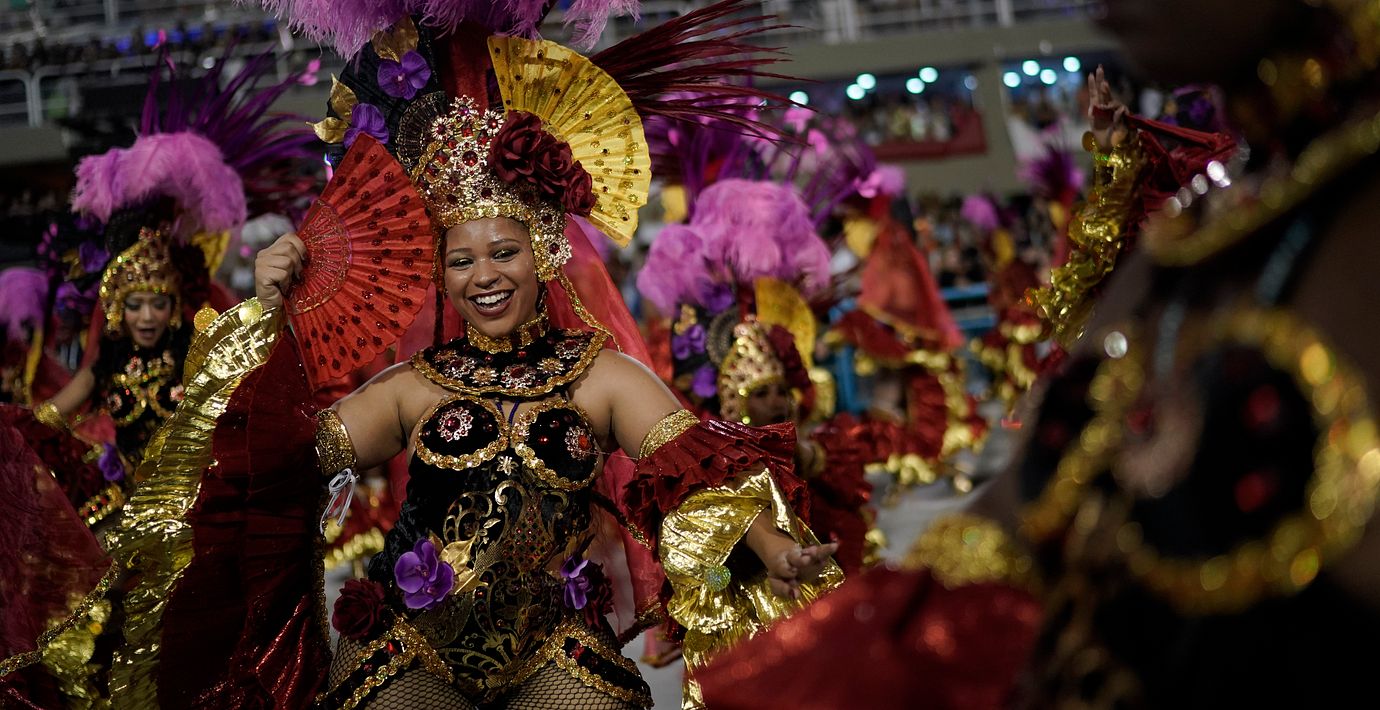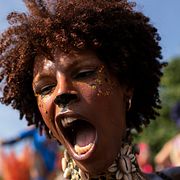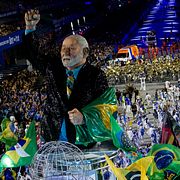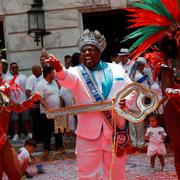
”Hoppas vid Gud att vi kan ordna karnevalen nästa år”
Ett vanligt år hade brasilianska São Paulo precis stått inför flera veckor av festligheter i samband med den årliga karnevalsäsongen. I år har allt ställts in, till följd av coronapandemin.
Det slår hårt mot stadens gatuförsäljare, som annars kan räkna hem en rejäl slant under karnevalfestligheterna, skriver Reuters.
Två av de dem är Claudia och Daylane Máximo Torres. De säljer i normala fall runt 10 000 burkar öl till festdeltagare i São Paolo, vilket brukar ge dem en vinst på runt 7 000 reals, motsvarande nästan 11 000 kronor.
Nu sätter de sitt hopp till vaccineringen.
– Nästa år hoppas jag vid Gud att karnevalen kan arrangeras igen, säger Claudia Máximo Torres till nyhetsbyrån.
bakgrund
Karnevalen i Brasilien
Wikipedia (en)
The Carnival of Brazil (Portuguese: Carnaval do Brasil, IPA: [kaʁnaˈvaw]) is an annual Brazilian festival held the Friday afternoon before Ash Wednesday at noon, which marks the beginning of Lent, the forty-day period before Easter. During Lent, Roman Catholics and some other Christians traditionally abstained from the consumption of meat and poultry, hence the term "carnival", from carnelevare, "to remove (literally, "raise") meat."Rhythm, participation, and costumes vary from one region of Brazil to another. In the southeastern cities of Rio de Janeiro, São Paulo, and Vitória, huge organized parades are led by samba schools. Those official parades are meant to be watched by the public, while minor parades (blocos) allowing public participation can be found in other cities, like Belo Horizonte, also in the southeastern region. The northeastern cities of Recife, Olinda, Salvador, and Porto Seguro have organized groups parading through streets, and public interacts directly with them. It is a six-day party where crowds follow the trios elétricos through the city streets, dancing and singing. Also in northeast, Olinda carnival features unique characteristics, heavily influenced by local folklore and cultural manifestations, such as Frevo and Maracatu.
The typical genres of music of Brazilian carnival are, in the Southeast Region in general, mostly cities of Rio de Janeiro and São Paulo: the samba-enredo, the samba de bloco, the samba de embalo and the marchinha; and in the Northeast Region including Pernambuco (mostly cities of Olinda and Recife): frevo and maracatu, and Bahia (mostly the city of Salvador): samba-reggae, pagode (also a type of Samba) and the main genre axé music. This rythims were mainly developed by Afro-brazlians and Pardos, incorporating and adapting many cultural influences, from the percussion beats of Africa to the military fanfares of europe and iberian music in the use of instruments like pandeiro and cavaquinho.
Carnival is the most popular holiday in Brazil and has become an event of huge proportions. Except for industrial production, retail establishments such as malls, and carnival-related businesses, the country unifies completely for almost a week and festivities are intense, day and night, mainly in coastal cities. Rio de Janeiro's carnival alone drew 4.9 million people in 2011, with 400,000 being foreigners.Brazilian carnival in essence is a synthesis of European, indigenous, and Afro-Brazilian cultural influences, each group has played an important role in the development of the structure and aesthetic of the Brazilian carnival of today. For instance, the main rhythms used in carnival celebrations were developed by Afro-Brazilians and make use of European instruments like the cavaquinho and pandeiro to create melodies and arrangements, also the fantasies and costumes in the Brazilian carnival borrow concepts from the clothing of the natives, like the use of feathers and the tendency to use lighter pieces of clothing. Historically its origins can be traced to the Portuguese Age of Discoveries when their caravels passed regularly through Madeira, a territory which already celebrated emphatically its carnival season, and where they were loaded with goods but also people and their ludic and cultural expressions.
Omni är politiskt obundna och oberoende. Vi strävar efter att ge fler perspektiv på nyheterna. Har du frågor eller synpunkter kring vår rapportering? Kontakta redaktionen



